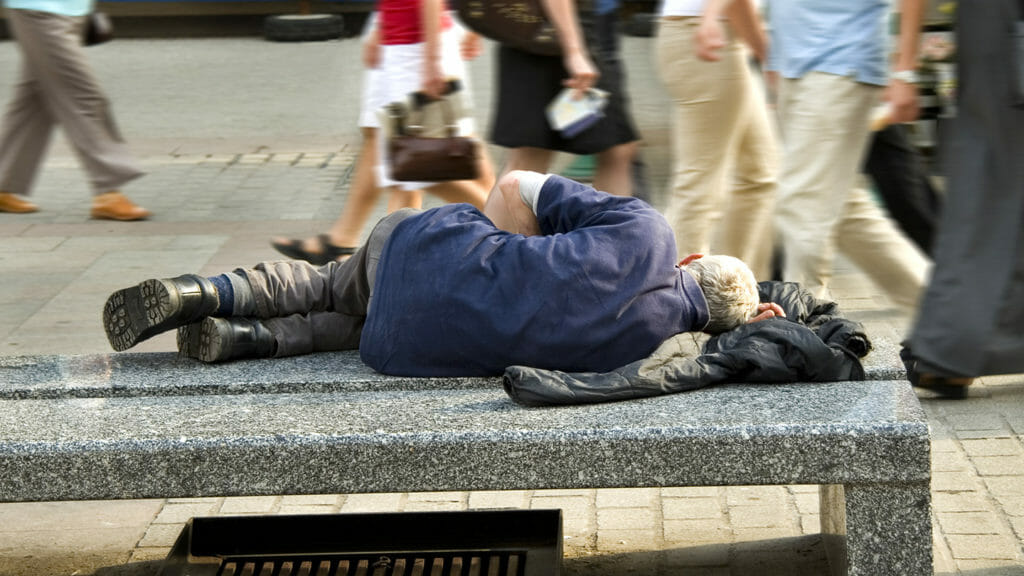
The older a person is who becomes homeless, the higher the likelihood of death, according to new research from the University of California San Francisco.
Researchers found that people who first became homeless after age 50 were 60% more likely to die than those who become homeless earlier in life. And older adults who remained homeless were 80% more likely to die than those able to return to housing.
The HOPE HOME (Health Outcomes in People Experiencing Homelessness in Older Middle Age) study sought to identify the prevalence and factors associated with mortality in homeless older adults.
Researchers recruited homeless older adults in 2013 and 2017 and followed them for 4.5 years, interviewing participants every six months about their health and housing status, drug use and chronic conditions. Many participants had serious conditions that went untreated, investigators found.
Among the study’s 450 participants, 117 had died by Dec. 31, 2021. The median age of death was 64.6 years, with heart disease and cancer (14.5% each) and drug overdose (12%) among the most common causes of death.
“Becoming homeless late in life is a major shock to the system,” said Benioff Housing and Homelessness Initiative Director Margot Kushel, MD, a senior author on the study.
The authors noted that their findings underscore an “urgent need” for policies to prevent and end homelessness among older adults.
“Older adults face the highest risk of severe rent burden in the US, and a high risk of homelessness,” the authors concluded. “Preventing homelessness for this population is key, given the increased mortality risk associated with late-life homelessness.”
Expanding the supply of affordable senior housing is among LeadingAge’s top policy priorities. The organization noted there is a severe shortage of affordable housing for low-income older adults, leading to a rise in homelessness among older adults.




